What is a Dental Crown?
A dental crown is a custom-made cap that fits over a damaged, weakened, or decayed tooth, restoring its strength, function, and appearance. Designed to look and feel like a natural tooth, a crown provides long-lasting protection while enhancing your smile.
Crowns are commonly recommended for:
- Large cavities that are too big for a standard filling.
- Cracked, worn-down, or weakened teeth that need reinforcement.
- Teeth that have undergone a root canal, as they become more fragile.
- Supporting a dental bridge or covering a dental implant for a complete restoration.
By securely encasing the tooth, a crown helps prevent further damage and ensures a strong, healthy bite.
Types of Dental Crowns
When selecting the right crown for your tooth, your dentist will consider factors such as its location, function, visibility when you smile, and the surrounding gum tissue. Crowns come in a variety of materials, each offering unique benefits.
Permanent Crowns (Long-Term Solutions)
These crowns are designed to provide lasting strength and protection:
- Porcelain Crowns – Natural-looking and stain-resistant, making them ideal for front teeth.
- Gold Crowns – Extremely durable, often used for molars where strength is a priority.
- Porcelain-Fused-to-Metal (PFM) Crowns – A combination of strength and aesthetics, with a tooth-coloured porcelain exterior over a metal base.
- Zirconia Crowns – Highly durable, biocompatible, and resistant to wear, making them a popular modern choice.
- Resin Crowns – A more affordable option, though less durable, typically used as a temporary solution.
Temporary Crowns
- Used as a short-term solution while waiting for a permanent crown.
- Placed with removable adhesive, making them easy to replace once the final crown is ready.
- Cover only a portion of the tooth rather than the entire structure.
- Used when a full crown isn’t necessary but additional support is needed.
Your dentist will guide you in choosing the best type of crown based on your needs, ensuring durability, functionality, and a natural appearance.
Dental Crown Procedure
Getting a dental crown is a straightforward process that can restore your tooth’s strength and appearance. Here’s what you can expect during the procedure:
1. Initial Assessment & Tooth Preparation
During your first visit, your dentist will assess the tooth needing the crown, including x-rays and cold and percussion testing. They’ll carefully reshape the tooth, ensuring it can properly support the crown. To ensure a perfect fit, your dentist will also take impressions of your teeth, which can be done using traditional molds or digital scans. This step is key to creating a custom crown that fits comfortably and looks natural.
2. Temporary Crown Placement
While your permanent crown is being crafted, your dentist will place a temporary crown to protect your tooth. It’s made from a softer material and is held in place with a removable adhesive. This temporary crown keeps your tooth safe and comfortable as you wait for your permanent one to be made.
3. Final Crown Placement
Once your permanent crown is ready (usually around 2 weeks in a local Perth lab), you’ll return for your second appointment. During this visit, your dentist will check the fit, making sure the crown feels comfortable and aligns perfectly with your natural bite. Once everything looks and feels just right, your dentist will bond the crown securely in place. You’ll leave with a restored tooth that looks and feels like your own!
Cost of Dental Crowns
The cost of a dental crown can vary based on several factors, including the material chosen, the complexity of the procedure, and whether additional treatments, such as a root canal, are required. On average, crowns can range in price depending on these factors.
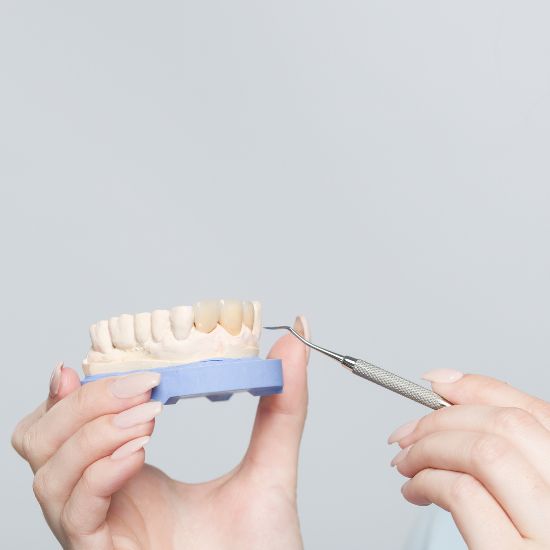
At Gentle Dental Centre, we are proud to be a preferred provider for HBF, CBHS, and HCF, which means that patients with these insurers may benefit from reduced out-of-pocket costs. Additionally, we accept Medibank Private and BUPA insurance, although please note that we are not a preferred provider for these companies. This means that while they may still cover a portion of your treatment, the reimbursement may vary.
We recommend checking with your insurer to understand what is covered under your plan, and our team is more than happy to help you navigate your insurance options. We also offer two deposit payments to ensure your dental crown procedure is as affordable and stress-free as possible.
For a clearer idea of the cost involved and how your insurance can assist, feel free to contact our friendly team. We’re here to help guide you through every step of the process!
How to Care for Your Dental Crown
Caring for your dental crown is essential to ensure its longevity and maintain your overall oral health. Here are a few tips to help you take care of your crown:
Maintain Good Oral Hygiene: Brush your teeth twice a day with a soft-bristled toothbrush and fluoride toothpaste. Floss daily to remove food particles and plaque from around the crown and the surrounding teeth, helping to prevent decay and gum disease.
Avoid Chewing Hard Foods: While crowns are designed to be durable, chewing on hard foods such as ice, hard candy, or even opening packages with your teeth can lead to chipping or damage. Be mindful of what you chew to keep your crown intact.

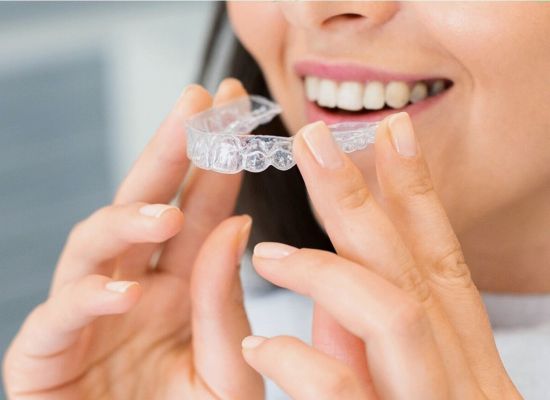
- Wear a Splint/Nightguard: If you grind your teeth at night (a condition known as bruxism), wearing a splint/nightguard can help protect both your natural teeth and your crown from excessive wear and damage.
- Schedule Regular Dental Check-Ups: Even though crowns are durable, it’s important to have regular dental check-ups to ensure they remain in good condition. Your dentist will monitor the health of your crown and surrounding teeth, making adjustments if necessary.
By following these simple steps, you can help prolong the life of your dental crown and maintain a healthy, beautiful smile!
Possible Complications & How to Handle Them
While dental crowns are durable and designed to last, some complications may arise over time. Here’s a guide to common issues and how to handle them:
- Tooth Sensitivity: Some patients experience tooth sensitivity after receiving a crown, particularly to hot or cold temperatures. If this discomfort persists, consider using a toothpaste formulated for sensitive teeth. If sensitivity continues, it’s a good idea to consult your dentist for further advice.
- Chipped Crown: A minor chip in your crown may be repairable, especially if it’s made of materials like porcelain. However, if the crown is severely damaged or cracked, it may need to be replaced. Contact your dentist as soon as possible to assess the damage and determine the best solution.

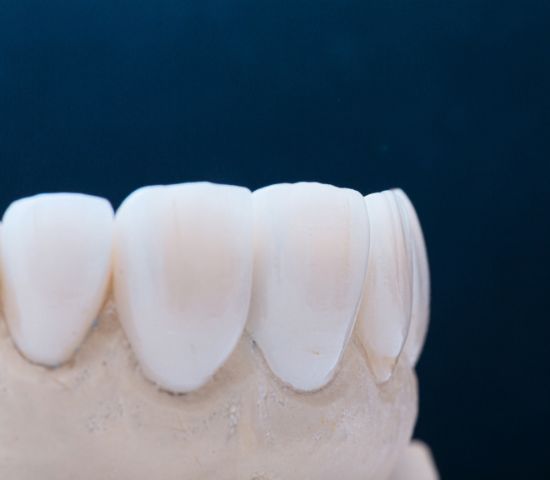
- Loose or Dislodged Crown: If your crown becomes loose or falls off, don’t panic. Contact your dentist immediately for reattachment. In the meantime, avoid chewing on the affected tooth and try to keep the crown safe if you still have it.
- Allergic Reactions: While rare, some patients may experience allergic reactions to the materials used in certain crowns, especially metal alloys. If you notice unusual reactions such as swelling or irritation around your crown, notify your dentist right away.
- Gum Disease: Just like with your natural teeth, it’s essential to maintain good oral hygiene around your crown to prevent gum disease. Regular brushing, flossing, and dental check-ups will help keep your gums healthy and prevent inflammation around the crown.
If you experience any of these issues or have concerns about your crown, don’t hesitate to contact your dentist. Prompt attention can help resolve problems quickly and prevent further complications.
How Long Do Dental Crowns Last?
The lifespan of a dental crown can vary depending on several factors, including the material used and how well you care for your crown. On average, dental crowns last anywhere between 5 to 15 years.
- Material Matters: Gold crowns, for example, are known for their exceptional durability and often last the longest due to their resistance to wear and tear. Other materials like porcelain or porcelain-fused-to-metal may last a bit less, but with proper care, they can still serve you well for many years.
- Proper Care: Just like your natural teeth, taking good care of your dental crown can significantly extend its lifespan. Regular brushing, flossing, and routine dental check-ups can help maintain its integrity. Avoiding hard foods or activities that may damage your crown, such as grinding your teeth, will also contribute to its longevity.
- Wear and Tear: Crowns that are placed on back teeth may experience more pressure and wear due to chewing forces, which could affect their lifespan. Your dentist can provide guidance on maintaining your crown based on your specific needs.
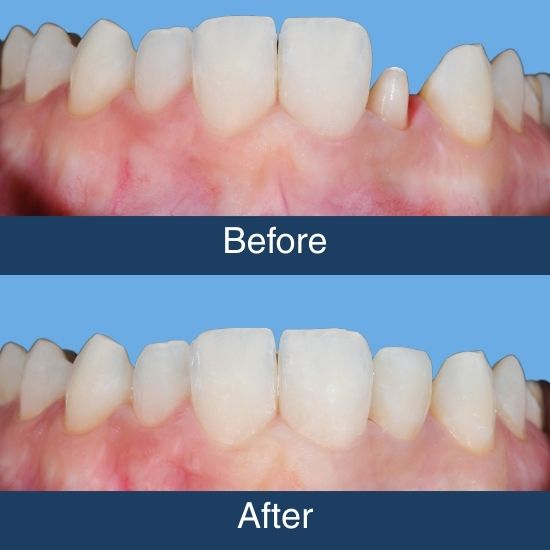
By following your dentist’s recommendations and maintaining excellent oral hygiene, you can maximise the life of your crown, ensuring it continues to protect your tooth for many years.
Alternatives to Dental Crowns
While dental crowns are an excellent solution for many dental issues, there are alternatives that may be more appropriate depending on your needs. Here are some options your dentist might recommend:
- Fillings or Inlays/Onlays: If the damage to your tooth is minor, such as a small cavity, a filling (may be all that’s needed to restore the tooth. For moderate decay or damage, inlays or onlays may be more suitable. These are custom-made to fit into or over the damaged part of the tooth, providing a more conservative option than a full crown.
- Veneers: For cosmetic concerns, such as a discolored or chipped tooth, veneers can be a great alternative. Veneers are thin shells of porcelain or composite resin that cover the front of the tooth, enhancing its appearance without the need for a full crown. This option is ideal when the tooth’s function is intact, and only appearance needs attention.
- Dental Bonding: For minor chips, cracks, or other aesthetic imperfections, dental bonding is a less invasive solution. Bonding involves applying a tooth-colored resin to the damaged area, which is then hardened and shaped to match the natural contour of the tooth. This is a fast and cost-effective option for smaller repairs.
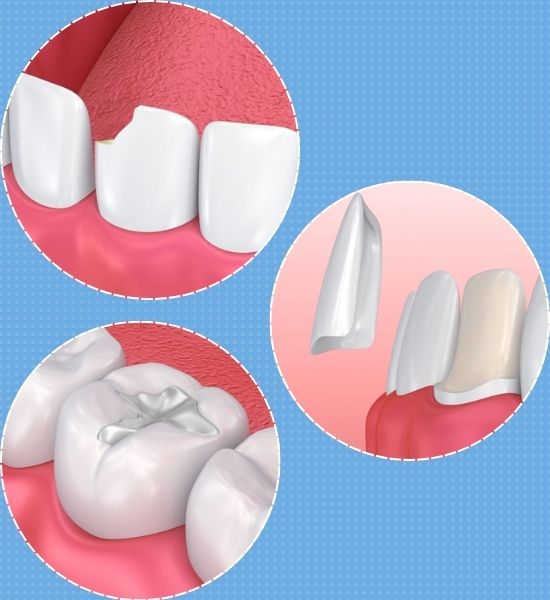
Your dentist will work with you to determine the best treatment option based on the extent of the damage, your oral health, and your aesthetic goals.
Begin your journey to a beautiful smile at Gentle Dental Centre.

Need a Dental Crown?
If you’re in need of a dental crown, don’t wait—book an appointment with Gentle Dental Centre today! Our experienced team is here to help restore your smile with expert care and a personalised approach. Let us help you achieve a healthier, more confident smile with the perfect crown for your needs. Contact us now to schedule your consultation!
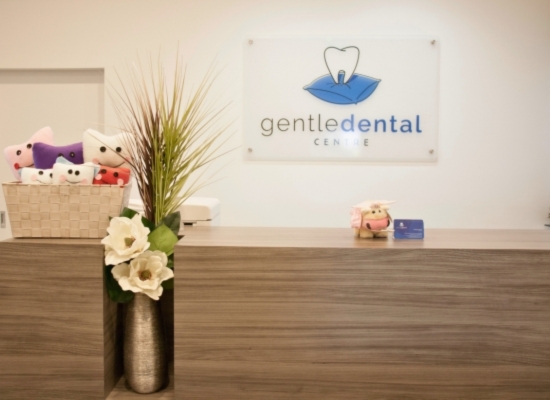
Frequently Asked Questions
How long does a tooth crown last?
A dental crown can last anywhere from 5 to 15 years, depending on factors such as the material used, your oral habits, and how well you maintain your oral hygiene. Zirconia crowns are generally the most durable option, but all crowns can last longer with proper care.
Is it painful to get a crown?
The process of getting a dental crown is generally not painful. Your dentist will numb the area around the affected tooth with a local anaesthetic to ensure you feel comfortable during the procedure. Afterward, you may experience mild sensitivity or discomfort, but this typically subsides within a few days.
What is the difference between a cap and a crown?
The terms “cap” and “crown” are often used interchangeably. Both refer to a custom-made covering that fits over a damaged or weakened tooth. However, “crown” is the more precise dental term, while “cap” is a layman’s term for the same thing.
What is the downside of crowns on teeth?
While dental crowns are an effective solution, they do have some downsides. They can sometimes cause tooth sensitivity, and the process of getting a crown requires removing some of the natural tooth structure. Crowns can also become loose or damaged over time, especially if not properly cared for.
When is it too late for a dental crown?
It may be too late for a dental crown if a tooth is too damaged or decayed to support one. If a tooth has extensive decay or fractures, your dentist may recommend other treatments, such as an extraction or dental implant. Your dentist will assess your tooth and determine the best course of action.
Can you get a crown without a root canal?
Yes, you can get a dental crown without needing a root canal. Crowns are often used for teeth that are cracked, severely worn, or have large cavities that can’t be filled. A root canal is only necessary if the tooth’s pulp is infected or damaged and requires treatment before placing the crown.







